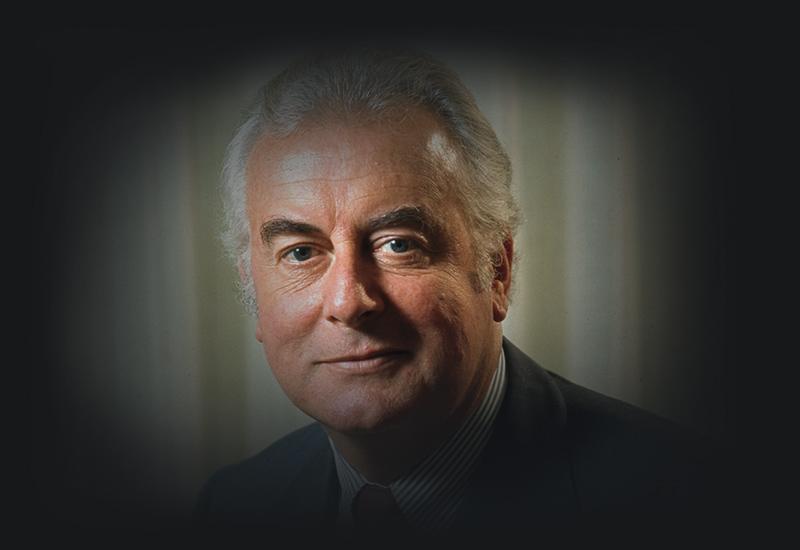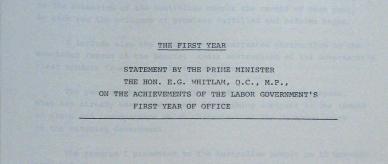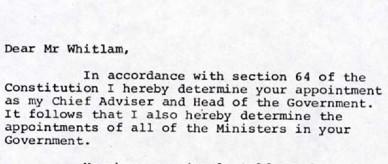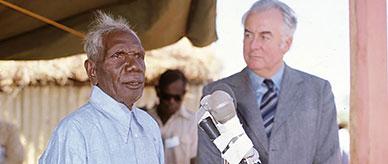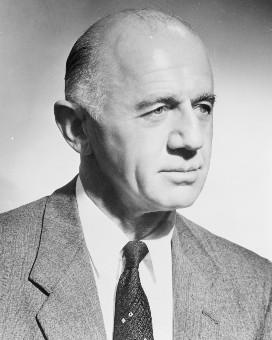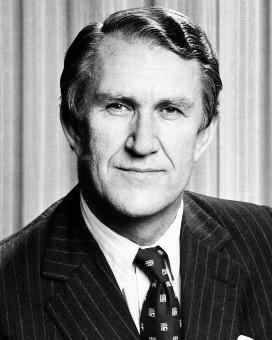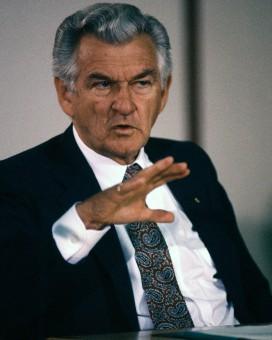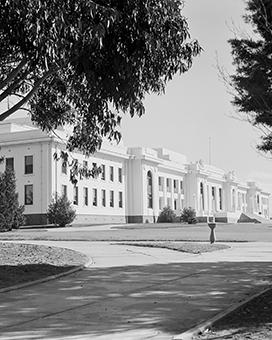About Gough Whitlam
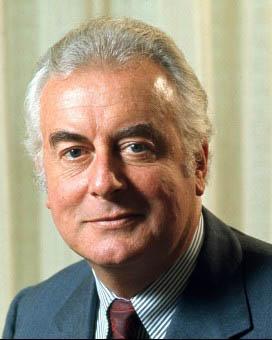
- Born: 11 July 1916
- Died: 21 October 2014
- Partner: Margaret Elaine Whitlam
- Political party: Australian Labor Party
- Image: NAA: A6135, K19/3/75/15
Gough Whitlam became Australia’s 21st Prime Minister on 5 December 1972. His Labor government, the first after more than 2 decades, set out to change Australia through a wide-ranging reform program. Whitlam’s term abruptly ended when his government was dismissed by the Governor-General on 11 November 1975.
The public lives of Gough Whitlam and his wife Margaret extend over half a century. After serving in the Royal Australian Air Force, Whitlam joined the Australian Labor Party in 1945. He became the Member for Werriwa in Sydney’s south in 1952, retaining the seat in 11 more federal elections over the next 25 years.
Whitlam led the reform of the Labor Party platform during the long years in Opposition. As Prime Minister, he immediately set about implementing a reform program that included strengthening Australia’s status by making Queen Elizabeth II Queen of Australia. His government drew on international agreements to develop programs on human rights, the environment and conservation.
Margaret Whitlam played an important role as a political and prime ministerial wife. An outspoken public speaker, broadcaster and columnist, she accompanied Gough Whitlam on his countless overseas travels. As a qualified social worker, she was particularly interested in social conditions. Their public lives continued after they left The Lodge in 1975. Mrs Whitlam died in March 2012.
Did you know?
Gough Whitlam:
- was the only prime minister to grow up in the national capital
- was dubbed ‘the young brolga’ when he entered parliament, for his height (194 cm) and imperious bearing
- was one of only 2 prime ministers whose lifetime spanned the lives of all 25 prime ministers in Australia’s first 100 years (John Gorton was the other)
- was on active service in the Second World War as a RAAF navigator, despite suffering badly from airsickness
- was the only prime minister dismissed from office
- and his government introduced a record number of Bills, and enacted a record number, though the Senate rejected 93 Bills, more than the total number rejected during the previous 71 years of the parliament
- was Australia's longest-lived prime minister
- was commemorated in 2000 with the Whitlam Institute

